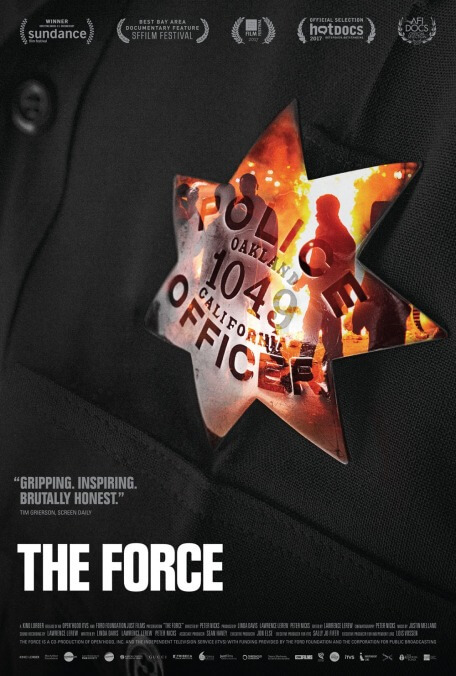The Force gains, then loses insider access to an embattled police department

Documentary filmmakers who tackle current events need to be open-minded and flexible, following the story wherever it leads them. Sometimes, this results in a movie that bears little resemblance to what the director imagined when shooting began. (Most famously, the harrowing sexual-abuse doc Capturing The Friedmans started out as an innocuous portrait of a birthday party clown.) That appears to be what happened with The Force, which observes the perpetually controversial Oakland Police Department over a period of roughly two years, starting a few months after the 2014 Ferguson protests. To his credit, director Peter Nicks (The Waiting Room) accepts the dispiriting trajectory that this initially hopeful film ultimately takes—there’s no dissembling here. Trouble is, most of the ugly stuff happens off-camera, necessitating a secondhand second half that amounts to an embarrassed “Oops.”
So dismal is the OPD’s recent history that The Force doesn’t bother to go into detail, merely noting that the department has been under federal oversight—a highly unusual circumstance—since 2003. The film’s first half chronicles police chief Sean Whent’s efforts to dismantle what Oakland mayor Libby Schaaf terms the “toxic macho culture” prevalent among the city’s cops. Nicks eschews talking heads, favoring the dispassionate gaze pioneered by Frederick Wiseman (albeit juiced up here with a pulsing, anxious electronic score); academy lectures instructing cadets not to be trigger-happy assholes are juxtaposed with ordinary police work caught on the fly. (Wiseman’s own version of this film is Law And Order, shot in Kansas City in 1968. Less has changed than one would hope.) Authority figures, including Whent, say all the right things and seem to be genuinely invested in turning the department around. Citizens’ complaints are taken seriously. The overall tone is cautiously triumphal.
And then everything abruptly goes to hell. More than a dozen OPD officers are implicated in a scandal involving an underage sex worker, and Whent soon resigns (amid rumors that he was forced out after refusing to take action). As does his successor. As does his successor, all in the space of nine days. Ultimately, the city takes the drastic step of placing the department under civilian control. Unfortunately, Nicks has the same access to these startling developments that everyone else does: TV news. From this point forward, The Force mostly just regurgitates headlines; the day-in-the-life approach, compelling though it had been, no longer makes sense, and its absence leaves a purely expository void. That isn’t anyone’s fault. Life simply played out in a way that, however arresting (both figuratively and literally), wasn’t very useful for this particular film. Being open-minded and flexible, following the story wherever it leads you, sometimes means smacking into a dead end.